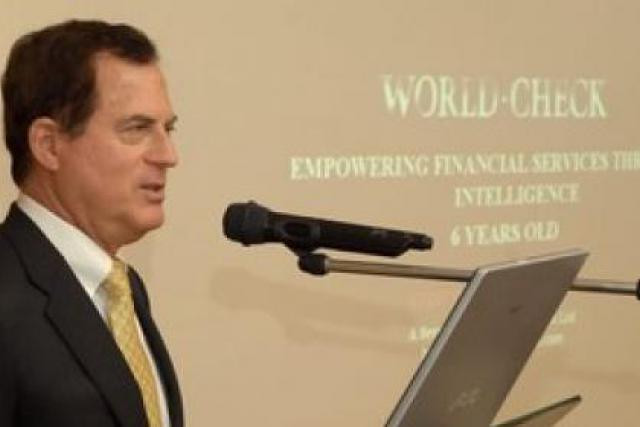“It is usually circumstances that put people into making decisions and choices, which they regret later,” says Kenneth Rijock, 61, a former banking attorney, who turned money launderer in the 1980s.
After under-graduating in history, he studied economics and then served in the Vietnam and Cambodia conflicts. “During that time, I learnt what is like to operate under adverse conditions,” he explains. After the war, he came back to the US, attended law school and then started his career in the backing department of a Miami law firm, before founding his own attorney practice.
Making the match
During that time, Rijock met an American citizen from a missionary’s family, of the same age group, who grew up in a Latin American environment and also served in Vietnam. Officially a Spanish teacher, “he happened to be a narcotic broker, a middleman between Colombian traffickers and Cuban narcotic distributors between Latin America, the US and Canada,” Rijock remembers.
While occasionally helping his “friend” to make the match, he acquainted with lots of clients – “people from all drug sides of the world, who were moving their drugs onto a very thirsty North American clientele, most doctors, lawyers, graduates who gravitated in the 1970s and 1980s” – asking first for law (car registration, real estate transaction, buying business and so on) then for money laundering services.
Rijock finally entered the laundering business, during the decade of the 1980s, by serving these clients as a money launderer and advisor (to narcotics trafficking organisations operating in North and South America), through a number of corporations he founded in the British Overseas Territories.
“Money laundering consists of three separate and distinct phases, he explained. the first, placement – i.e. putting the money into the global financial system –, by finding “a co-operative bank anywhere in the world, a bank in the Caribbean or Anguillan resorts, with no US branch, no correspondent relationship, no physical location or nexus with the US. None of its directors were American, they were all from overseas,” he recalls.
The second phase of the operation, layering the money, consists of “moving the money in the system to totally disguise its criminal origins.” And stage three is investing the money for the client, its criminal origin being then totally unknown. “In the ten years I was involved in this dirty business, I’ve never been apprehended once with cash,” he says.
Tweaking the establishment
However, Kenneth Rijock was arrested and charged with “interfering with a local collection of revenue,” and took a four-year-sentence. Whilst serving his federal prison, he is contacted by the first joint Swiss-American money laundering investigative organisation of bankers and lawyers and got his sentence reduced to two years while collaborating to the latter.
Since 1992, he has been providing a range of anti-money laundering services, including training undercover agents for the Royal Canadian Mounted Police, lecturing before law enforcement, intelligence services as well as in the financial community. He also acted as a money launderer in an undercover role on behalf of law enforcement in Florida and on behalf of network television in the tax havens of the Caribbean.
Why do people get involved in such business? For the now financial crime consultant based in Miami, it is a very high risk occupation. “It is frankly for many people involved in it an extraordinary amount of fun to tweak the establishment, to risk to going to prison for a long time (20 year-jail in the US) for the ability to move dirty money for their clients, he explains. Both the traffickers and people from the law enforcement agencies had the same background than I do: combat veterans, who also have been in high risk occupations, people who were not afraid to push the envelope.” Since 2005, Kenneth Rijock, has submitted around 1,300 articles to World-Check on criminal money.
Asked why a former money launderer co-operates to the Switzerland-based organisation, Patric Marshall of World-Check replies: “First, Mr. Rijock is one of the most famous individuals to appear in the World-Check database. More important, it is impossible for us to really learn about money laundering until we learn from the experts.”
Founded in 2001, World-Check is an open source intelligence database, which collects detailed profiles on terrorists, organisations and on those who finance terrorism, money launderers, fraudsters, politically exposed persons. With more than 810,845 indexed names of individuals and organisations in 2007, the institution offers banks, institutional lenders, lawyers, accounting firms and other regulated financial services providers a comprehensive solution for meeting their regulatory compliance requirements.
